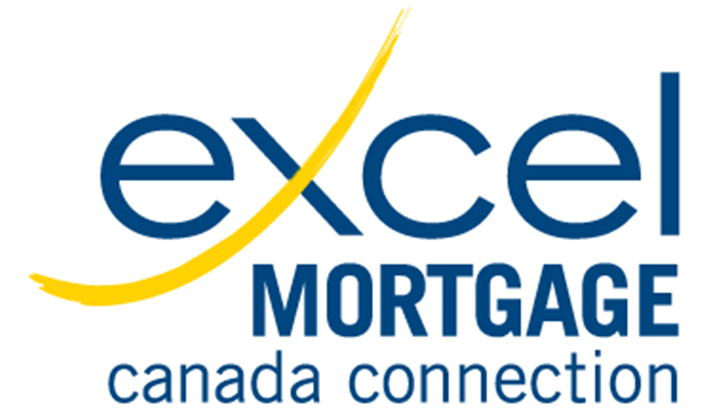It PAYS to shop around.
Many Canadian homeowners pay too much for their homes because they are not getting the best mortgage financing available in the market.
The mortgage process can be intimidating for homeowners, and some financial institutions don't make the process any easier.
But I’m here to help!
I’m a VERICO Mortgage Advisor and I’m an independent, unbiased, expert, here to help you move into a home you love.
I have access to mortgage products from over forty lenders at my fingertips and I work with you to determine the best product that will fit your immediate financial needs and future goals.
VERICO mortgage specialists are Canada’s Trusted Experts who will be with you through the life of your mortgage.
I save you money by sourcing the best products at the best rates – not only on your first mortgage but through every subsequent renewal. So whether you're buying a home, renewing your mortgage, refinancing, renovating, investing, or consolidating your debts — I’m the VERICO Mortgage Advisor who can help you get the right financing, from the right lender, at the right rate.
Bank of Canada holds policy rate at 2¾%
The Bank of Canada today maintained its target for the overnight rate at 2.75%, with the Bank Rate at 3% and the deposit rate at 2.70%.
The major shift in direction of US trade policy and the unpredictability of tariffs have increased uncertainty, diminished prospects for economic growth, and raised inflation expectations. Pervasive uncertainty makes it unusually challenging to project GDP growth and inflation in Canada and globally. Instead, the April Monetary Policy Report (MPR) presents two scenarios that explore different paths for US trade policy. In the first scenario, uncertainty is high but tariffs are limited in scope. Canadian growth weakens temporarily and inflation remains around the 2% target. In the second scenario, a protracted trade war causes Canadas economy to fall into recession this year and inflation rises temporarily above 3% next year. Many other trade policy scenarios are possible. There is also an unusual degree of uncertainty about the economic outcomes within any scenario, since the magnitude and speed of the shift in US trade policy are unprecedented.
Global economic growth was solid in late 2024 and inflation has been easing towards central bank targets. However, tariffs and uncertainty have weakened the outlook. In the United States, the economy is showing signs of slowing amid rising policy uncertainty and rapidly deteriorating sentiment, while inflation expectations have risen. In the euro area, growth has been modest in early 2025, with continued weakness in the manufacturing sector. Chinas economy was strong at the end of 2024 but more recent data shows it slowing modestly.
Financial markets have been roiled by serial tariff announcements, postponements and continued threats of escalation. This extreme market volatility is adding to uncertainty. Oil prices have declined substantially since January, mainly reflecting weaker prospects for global growth. Canadas exchange rate has recently appreciated as a result of broad US dollar weakness.
https://www.bankofcanada.ca/2025/04/fad-press-release-2025-04-16/
Bank of Canada: Canadian Survey of Consumer Expectations—First Quarter of 2025
The Canadian Survey of Consumer Expectations was conducted through an online panel from January 29 to February 19, 2025. Follow-up phone interviews took place from February 20 to 25, 2025. This period was characterized by pervasive uncertainty created by the sudden and unpredictable shifts in US trade policy.
Overview
Overall, results of the first-quarter 2025 survey show that the escalating trade conflict with the United States is damaging consumer sentiment.
Confidence in the labour market has weakened sharply. This is because many consumersnotably those working in sectors that are highly dependent on tradeare worried about losing their job. In this context, consumers have also become more pessimistic about their financial health.
Although consumption plans had been improving over several quarters, consumers now intend to spend more cautiously given the uncertainty around the trade conflict. In addition, elevated housing costs and the high prices of many goods and services continued to weigh on households spending plans.
Consumers expect the trade conflict to lead to a higher cost of living. This is reflected in their short-term inflation expectations, which rose in the first quarter of 2025.
https://www.bankofcanada.ca/2025/04/canadian-survey-of-consumer-expectations-first-quarter-of-2025/
TD Provincial Housing Outlook: Housing on Shaky Foundation Amid Tariff Turbulence
By TD Economics
The one-two punch of winter storms and tariff-related economic uncertainty sent a chill through Canadian housing markets in the first quarter. Were now tracking a double-digit quarterly decline in Canadian home sales and a mid-single digit drop in Canadian average home prices. These outcomes are much weaker than our pre-Trump inauguration forecast made in December, where we assumed that a loosening in federal mortgage rules, lower interest rates and continued economic growth would fuel a modest Q1 gain in sales and prices.
This much softer starting point has us led to materially mark down our 2025 annual average growth forecasts for Canadian home sales and prices. Moving forward, its unlikely that activity will be as weak as it was in the first quarter. However, we still think that elevated uncertainty and a deteriorating jobs market will yield subdued sales and price growth for much of 2025.
2025 home price forecasts have been cut the most in B.C. and Ontario, where we now think that prices will decline in annual average terms this year. This reflects muted demand conditions in both markets and supply/demand balances that are heavily skewed in the favour of buyers. Of note, the GTA condo market is particularly soft, which will weigh on prices in Ontario this year. Elsewhere, 2025 quarterly price growth forecasts have been marked down to sub-trend levels in other parts of the country. Were retaining our view that quarterly price gains will outperform in the Prairies moving forward given relatively tight supply/demand balances and comparatively better affordability.
An improving backdrop should set the stage for a notable rebound in home sales and average home prices in 2026. Specially, hiring should improve as were assuming a dialing back in tariff-related uncertainty . At the same time, interest rates should be at multi-year lows. These factors will facilitate the release of significant pent-up demand. However, the scale of bounce-back in Canadian average home prices will likely be restrained by poor affordability in key markets like B.C. and Ontario.
https://economics.td.com/ca-provincial-housing-outlook






























